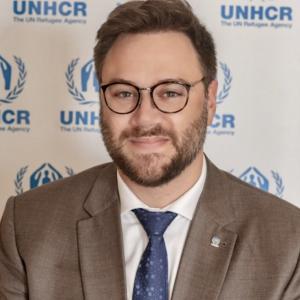Every year, on 25th November, the international community is united to reaffirm our commitment to eradicate violence against women.
The date was proposed to the UN General Assembly in 1999 by the Dominican Republic with the support of 74 States, to honour the life of the Mirabal sisters, three Dominican women who were brutally murdered during the dictatorship of Rafael Leonidas Trujillo.
I have spent almost half of my life working for UNHCR, the UN Refugee Agency, in several operations, and I was previously based in Santo Domingo, where the Mirabal sisters, or “The Butterflies”, how they are called there, are considered true heroines.
The campaign 16 Days of Activism from November 25th – the International Day for the Elimination of Violence against Women - until December 10th – the International Day of Human Rights – offers a platform for us to remember and honour the past and present victims of gender-based violence and to raise awareness on the topic to prevent such cases to occur. The dates for the campaign were also chosen to link violence against women and human rights and to emphasize that gender-based violence is a violation of human rights.
There has been a significant increase in the number of people fleeing persecution all over the world, including from sexual and gender-based violence. UNHCR’s data show that there are now 114 million forcibly displaced persons, and 51 percent of them are women and girls.
When we also add the fact that 75% of the world’s refugees are hosted by low and middle-income countries which often do not have sufficient resources to provide the adequate support, it is then that we are struck by the grim reality – refugee women and girls are not only more exposed to violence and abuse, but at the same time, they have even less access to protection and support services.
During the 16 Days of Activism against Gender-Based Violence, it is crucial to remember the challenges that forcibly displaced women face. Displacement often brings risks that are untold or difficult to see. Recent data points that the risk for intimate partner violence is 20% higher for forcibly displaced women. Gender-based violence can occur at any time of displacement, prior to or during the fleeing, during the displacement, and when they reach a safe country. During these times, women may be separated from their families and may lack access to reproductive health services and basic necessities, including shelter. And these factors increase the risk of experiencing gender-based violence and are often a reason for people to flee in the first place. It is important to mention that sexual violence and other types of gender-based violence may constitute grounds for refugee status.
Gender-based violence has many consequences for individuals and families, and the majority of them last for a long time. It inflicts harm on the physical and mental health, as well as the psychosocial wellbeing. Additionally, social stigma and rejection may appear, which often lead to underreporting of this type of human rights violation.
In North Macedonia, UNHCR provides technical assistance to authorities to ensure that refugee and stateless women and girls who are survivors of gender-based violence have access to specialized protection mechanisms, regardless of their origin or status. UNHCR works with partners to provide free legal aid and timely psychosocial support, in a language they can understand, through trained lawyers, psychologists, social workers, and interpreters.
Let us take advantage of this campaign to identify opportunities for strengthening our alliances and to call for a coordinated work on protection and inclusion to prevent and end gender-based violence. Refugee women and stateless women must be fully included in public policies and services without discrimination.
Our Agency renews its commitment to reduce and mitigate the risk of gender-based violence in our region through prevention and response interventions organized in partnership with communities, NGOs, government interlocutors and host populations, always looking through the lenses of age, gender and diversity, while employing community-based, survivor-centred and rights-based approaches.
We must all work for protection and inclusion, as they are factors that lead to sustainable development. Only when everyone feels safe and fully included, can they contribute to the growth of the society that leaves no one behind.





